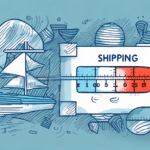Understanding FedEx Shipping Costs
When it comes to shipping packages or documents, cost is a critical factor for both businesses and individuals. FedEx offers a cost-effective and reliable solution, but understanding how it calculates shipping costs and the various factors that influence these costs is essential for optimizing your shipping budget. This section delves into the intricacies of FedEx's pricing structure to help you make informed decisions.
How FedEx Calculates Shipping Costs
FedEx determines shipping costs based on several key factors:
- Package Weight and Dimensions: Heavier and larger packages incur higher shipping fees. FedEx uses dimensional weight, which considers both the size and weight of the package, to calculate costs.
- Destination: The distance between the shipping origin and destination plays a significant role. International shipments may also be subject to customs fees and tariffs.
- Shipping Speed: Faster delivery options like overnight or express shipping cost more than standard ground shipping.
- Additional Services: Services such as insurance, signature confirmation, and special handling can add to the total cost.
- Fuel Surcharges and Taxes: Fluctuating fuel prices and applicable taxes are included in the final shipping cost.
For an accurate quote, FedEx offers a shipping calculator on their website. By entering the package details, you can obtain an estimated cost tailored to your specific shipment.
Factors Affecting Shipping Costs
Beyond weight and dimensions, several other variables influence FedEx shipping costs:
- Origin and Destination: Shipping to remote or international locations may involve additional fees.
- Delivery Speed: Options range from same-day delivery to standard ground shipping, each with its own cost implications.
- Package Type and Content: Hazardous or fragile items require special handling, increasing the shipping cost.
- Seasonal Demand: Peak seasons like holidays can lead to higher shipping rates due to increased demand.
- Economic Factors: Events such as natural disasters or pandemics can disrupt shipping logistics and affect costs.
Comparing FedEx to Other Shipping Carriers
To ensure you're receiving the best value, it's crucial to compare FedEx's shipping costs with those of other carriers such as UPS, DHL, and USPS.
Pricing Comparison
FedEx is known for its competitive pricing, but rates can vary depending on the service and destination. For example, UPS and DHL offer similar services but may differ in pricing structures. It's advisable to use each carrier's shipping calculator to compare rates based on your specific needs.
Service and Reliability
While cost is important, other factors such as delivery speed, reliability, and customer service quality should also be considered. According to a Statista report, FedEx consistently ranks high in delivery reliability and customer satisfaction compared to its competitors.
Coverage Area
Another critical aspect is the coverage area. Some carriers may have limited reach in certain regions or countries. Ensuring that the carrier you choose can effectively deliver to your desired destinations is essential for seamless shipping operations.
FedEx Shipping Services and Cost Optimization
FedEx offers a variety of shipping services tailored to different needs. Understanding these options can help you choose the most cost-effective solution for your shipments.
Different FedEx Shipping Services
- FedEx Ground: Ideal for less urgent shipments within the United States, offering reliable and cost-effective ground shipping.
- FedEx Express: Provides expedited shipping options, including overnight and two-day delivery services.
- FedEx SameDay: Offers urgent delivery services for shipments that need to arrive within hours.
- International Shipping: Includes options like FedEx International Priority and Economy for global deliveries.
Each service comes with its own pricing and delivery timelines, allowing you to select the best fit for your specific requirements.
Choosing the Right Service
When selecting a FedEx service, consider the following:
- Delivery Timeframe: Assess how quickly your package needs to arrive.
- Budget Constraints: Align your shipping needs with your budget by selecting a service that offers the best balance between cost and speed.
- Package Requirements: Consider any special handling needs based on the contents of your package.
Using FedEx's online tools, such as the FedEx Ship Manager, can assist in making informed decisions about which service to use.
Cost-Saving Strategies for FedEx Shipping
Minimizing shipping costs without compromising on service quality is a common goal for businesses and individuals alike. Here are some effective strategies to reduce your FedEx shipping expenses:
Choose Slower Shipping Options
Opting for standard ground shipping instead of expedited services can lead to significant savings. According to FedEx, choosing their Ground service can be up to 50% cheaper than express options, depending on the package size and distance.
Efficient Packaging
Properly packaging your items can prevent additional fees related to overweight or oversized packages. Utilize FedEx's packaging supplies to ensure your packages meet dimensional and weight requirements, thus avoiding extra charges.
Leverage Volume Discounts
If you ship frequently, consider enrolling in FedEx's Business Pricing program. This can provide substantial discounts based on your shipping volume, reducing the overall cost per shipment.
Negotiate Rates
Businesses with regular shipping needs can negotiate better rates with FedEx. Engaging directly with FedEx representatives to discuss your shipping patterns and requirements may lead to customized pricing plans that offer greater savings.
Avoiding Common Shipping Mistakes
Errors in shipping can lead to increased costs and delays. Being aware of common pitfalls can help you streamline your shipping process and maintain cost efficiency.
Accurate Measurement and Weighing
Misjudging the size or weight of a package can result in unexpected fees. Always use reliable scales and measuring tools to ensure accuracy when preparing shipments.
Choosing the Wrong Service Level
Selecting an inappropriate service level, such as choosing express shipping for non-urgent packages, can unnecessarily inflate costs. Evaluate the urgency of each shipment to choose the most suitable service.
Overlooking Additional Fees
Be mindful of additional charges like fuel surcharges, insurance, or special handling fees. Reviewing FedEx's rate guide can help you anticipate and plan for these costs.
Incomplete or Incorrect Labeling
Improper labeling can lead to delays or misrouting, which may increase costs. Ensure all shipment labels are complete and accurate, including recipient details and package information.
Tracking and Analyzing Your Shipping Costs
Monitoring your shipping expenses over time is essential for identifying cost-saving opportunities and optimizing your budget.
Utilize FedEx Tracking Tools
FedEx provides comprehensive tracking tools such as FedEx Ship Manager and FedEx Tracking that allow you to monitor your shipments in real-time, ensuring efficiency and accountability.
Analyze Shipping Data
Regularly reviewing your shipping data can help identify trends and areas for improvement. Tools like shipping analytics platforms can provide insights into your shipping patterns, helping you make data-driven decisions to reduce costs.
Calculating Return on Investment (ROI)
Assessing the ROI of using FedEx involves comparing the costs against the benefits, such as delivery speed, reliability, and customer satisfaction. A Harvard Business Review article suggests that optimizing these factors can enhance ROI, making your shipping investments more effective.
Conclusion
Understanding and managing the cost of shipping with FedEx involves comprehending the various factors that influence pricing, comparing FedEx with other carriers, selecting the appropriate shipping services, and implementing cost-saving strategies. By accurately measuring your packages, choosing the right shipping options, and leveraging FedEx's tools and programs, you can optimize your shipping budget while ensuring reliable and timely deliveries. Regularly tracking and analyzing your shipping data further empowers you to make informed decisions that enhance efficiency and reduce expenses, ultimately contributing to the success of your business or personal shipping needs.






















